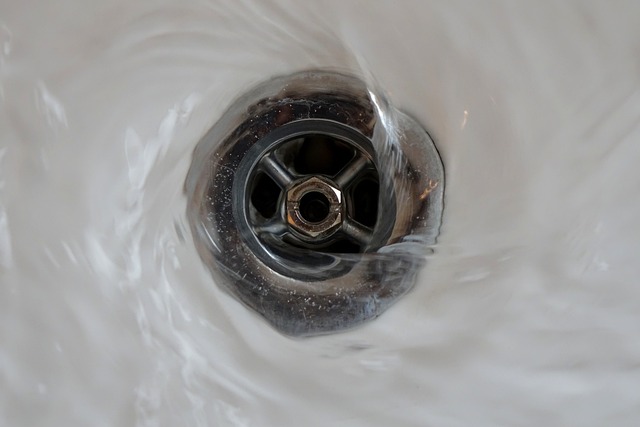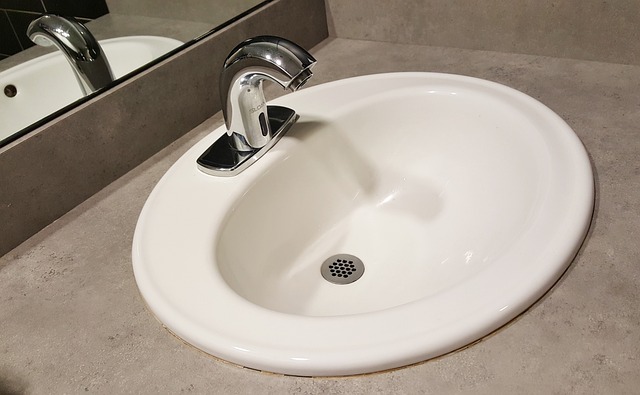Homeowners should be vigilant about potential clogged drains, as early detection prevents costly repairs and maintains plumbing system efficiency. Look for warning signs like slow drainage, unusual noises, backups, foul odors, low water pressure, long pipe running times, gurgling toilets, temperature disparities, wet areas around drains, and slowly filling sinks. Addressing these issues promptly can avoid severe blockages caused by grease buildup or tree roots, ensuring a smooth-running plumbing system. Regular monitoring of these signs of a clogged drain is key to preventing health hazards and costly disruptions.
Is your drain acting up? It might be trying to tell you that something’s amiss! This article explores 10 clear signs of a clogged drain you can’t ignore, from water backup and slow drainage to strong odors and difficulty flushing. Understanding these warning signs and their underlying causes—such as buildup, tree roots, or damaged plumbing—is key. Learn when it’s time to call a professional plumber for persistent clogs, overflows, or strange noises. Stay ahead of drain issues with this essential guide to keeping your pipes in tip-top shape.
- Identifying the Warning Signs
- – 1.1 Water Backup and Slow Drainage
- – 1.2 Strong Odors or Unpleasant Aroma
Identifying the Warning Signs

Many homeowners often ignore signs that their drains are trying to communicate a problem. However, addressing clogs early can prevent costly damage and inconvenient backups. Keep an eye out for these ten warning signs—they could be indicators of a clogged drain:
1. Slow Draining: If water is draining slowly from your sinks, showers, or toilets, it’s a classic sign of a potential clog. This is often the first noticeable signs of a clogged drain.
2. Unusual Noises: Strange gurgling or banging sounds coming from drains can signal a blockage. These noises occur when water struggles to flow through a partially blocked pipe.
3. Backups: When water backs up into your sink or shower, it’s a clear indication that something is obstructing the drain’s normal flow.
4. Unusual Odors: A foul smell coming from your drains could point to a buildup of debris and bacteria, often caused by a clog.
5. Low Water Pressure: Reduced water pressure in your home might be due to a partial clog blocking the free flow of water through the pipes.
6. Pipes That Run Longer Than Normal: If water continues to run after flushing or turning off the faucet, it suggests that drains are working overtime to clear an obstruction.
7. Gurgling Toilets: When you flush the toilet and hear gurgling sounds from other drains, it means water is backing up due to a clog further down the line.
8. Separation of Hot and Cold Water: If hot and cold water temperatures differ significantly when running simultaneously, it could indicate a clog blocking water flow.
9. Moist or Wet Areas Around Drains: Water seeping around drain covers or pipes might suggest a leak caused by a severe clog.
10. Slowly Filling Basins: In sinks with drainage holes, if water fills slowly or doesn’t drain at all after plunging, it’s likely due to a blockage.
– 1.1 Water Backup and Slow Drainage

Many people ignore water backup and slow drainage, but these could be critical signs of a clogged drain. If you’ve noticed that your sink, bathtub, or shower is draining slowly, it’s not just an inconvenience; it could indicate a severe blockage in your plumbing system. This issue often manifests as water pooling in the basin or tub, even after you’ve turned off the faucet or drained the tub. The root cause could be various, from grease buildup and hair clogs to tree roots infiltrating pipes.
Pay close attention if these symptoms persist, as they’re clear indications of potential plumbing problems. Ignoring them could lead to more significant damage and costly repairs. Regular maintenance and promptly addressing signs of a clogged drain are essential to keeping your plumbing system running smoothly and efficiently.
– 1.2 Strong Odors or Unpleasant Aroma

If your drain is emitting strong, unpleasant odors, it could be a clear sign that something is amiss. This is often one of the first noticeable signs of a clogged drain. The smell might be pungent or even putrid, and it can indicate a buildup of gunk and debris that has led to an excessive multiplication of bacteria and other microorganisms. These odors are not just unpleasant; they can also point to potential health hazards if left unaddressed.
When water flows down the drain smoothly without any obstructions, it helps maintain a fresh and clean aroma in your home. If this changes, and you start noticing strange smells coming from your drains, it’s time to investigate further. Pay attention to persistent or intense odors, as they could be an early warning sign of a more significant issue, like a severe clog that needs immediate attention.
If you’ve noticed any of these alarming signs of a clogged drain, don’t ignore them. Prompt action is key to preventing more severe and costly plumbing issues down the line. Regular maintenance, such as using drain covers and avoiding flushing non-biodegradable materials, can go a long way in keeping your drains healthy and efficient. Don’t let a minor inconvenience turn into a major headache – take care of your drains before they tell you they’re in trouble!
